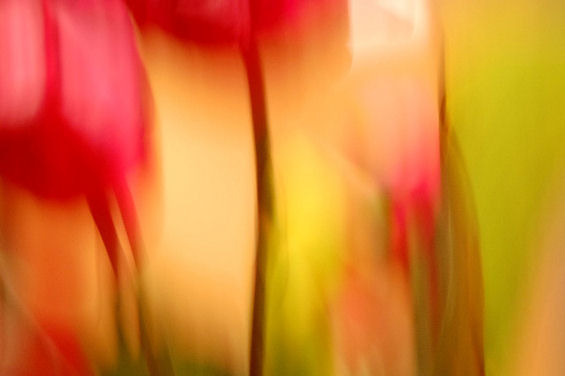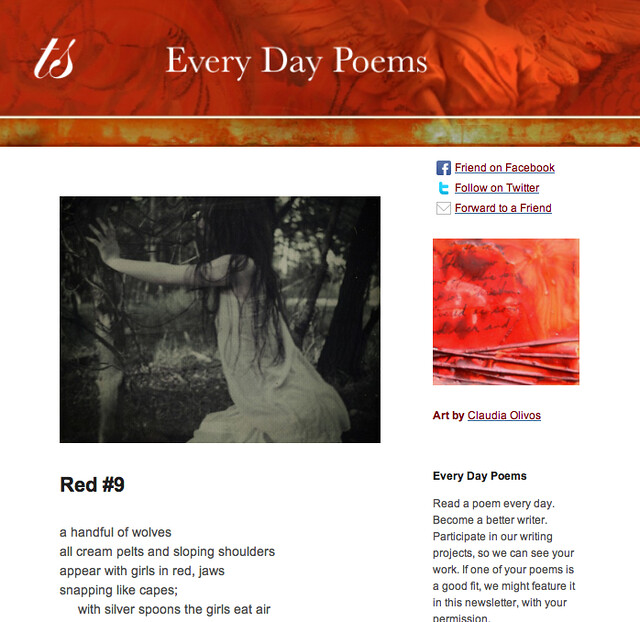Seeing the tubes and bottles of paint brought a smile to my face.
I was packing a bag to take to a friend’s house for the day, and among the things I was bringing were the paints, a jar filled with brushes of all sizes, and a couple of fresh white canvases. Sarah, an artist far more accomplished than I, had invited me to paint with her in her studio for the day. I had been anticipating the date for weeks.
A few years back, Sarah and I had taken watercolor lessons together from an artist in our church. Every week we learned techniques and developed preferences for moving pigment around canvas with water and brushes. When our teacher Peggy had told me I had talent, I believed her. “You need to paint every day, ” she told me, when I asked her how I could get better. I was determined to do it.
But from the beginning, it was a habit that never developed. I was working every day, writing every day, reading every day, and a host of other every day activities. Painting didn’t fit somehow. And when I painted, even if I did it every week, I didn’t really improve.
When Sarah invited me to paint with her, I jumped at the chance, but by that time, it had been months since I had put brush to canvas. I had long since abandoned the tedium of water color for acrylics. And the unfinished canvases that were scattered through my own studio were evidence that I struggled even to complete a work.
“Artist” is not a word I used to describe myself anymore.
A jar of fresh cut irises became our still life. Sarah painted with oils. I pulled out the acrylics. As I prepared to take the first stroke, I felt the effect of all those months since I had done this. I wasn’t sure how much to sketch on the canvas ahead of time. I struggled to choose the right brush. Even mixing the paints felt foreign: which green should I use, how could I achieve just the right shade of purple?
As we began to paint, Sarah’s strokes were broad, layering pigment on pigment. My strokes were small and calculated, watery smears of pigment on the slick background. I captured most of the jar and the long stemmed flowers on a small canvas. Sarah chose to reflect just a small portion of each on her much larger canvas. Sarah’s composition was striking, mine was safe. I looked from Sarah’s canvas to mine. Back to Sarah’s, then to the jar of flowers.
I don’t know how to do this anymore, I thought.
Early discouragement has always been part of my painting process. I have to coddle myself in those moments, convince myself that going slow is fine; I can come back to it later. But in the last couple of years, I haven’t returned to the paintings I struggled with.
Sitting there facing a canvas that looked anything like the jar of irises I was seeing, I had a choice to make: I could live with regret that I will never be the painter I had hoped to be, or I could enjoy being the occasional painter I am. I will always mourn the death of the nascent artist in me, but the alternative, never painting again, felt like the bigger loss.
I loosened my grip on the brush, took a deep breath, and finished the painting. Sarah continued working and reworking the edge of the jar, the shape of the petals, the fade of the stems into the background. I continued to glance at her canvas regretfully.
But when I added the final highlights to the jar and dabbed on the smallest bits of white and yellow to the inside of the irises, I felt a profound sense of relief.
The painting was finished.
Photo by Marcela Paolantonio. Creative Commons, via Flickr. Post by Charity Singleton.
___________
Buy a year of Every Day Poems, just $5.99— Read a poem a day, become a better poet. In July we’re exploring the theme The Cento.
- Grammar for a Full Life Book Club: On Becoming Less Possessive - June 16, 2021
- Grammar for a Full Life Book Club: Chilling Out on the Grammar Rules - June 9, 2021
- Grammar for a Full Life Book Club: A Passive Voice - June 2, 2021


L. L. Barkat says
Charity, this story fascinates me.
I wonder what might loosen the process for you?
And I have to say that when I was doing pastels, it always seemed tenuous… the moment of deciding the composition was “done.”
How do you do it? What says “done” to you? I think I’m far better at knowing the answer to this question when it comes to my writing 🙂
Charity Singleton says
Changing my expectations were an important part of loosening the process, for sure. As well as understanding that time spent painting – at least at the level I would want – means time away from writing. And I choose writing, easily.
Done. That’s a hard one. I think deadlines help with that! And again, the expectations.
Thanks for your comments.
Megan Willome says
Charity, this touches me.
Several years ago I took a drawing class. The instructor told me I had talent and should keep it up, but I thought my drawings were ugly, so I quit. Didn’t even attend the last class. The weird thing is I don’t even feel regret, but I did when I read this.
L. L. Barkat says
I’m interested in knowing why you felt regret upon reading this 🙂
Charity Singleton says
I would be interested, too. If you had pursued painting then, would you be writing now? Or do you regret that you don’t paint at all anymore? That would be my regret, too, I think. I do it occasionally, as I wrote, and that fuels me. The same is true for the guitar. I play just a teeny little bit. But that is enough.
Will Willingham says
The article raises some good questions about what we can actually do and have — clearly not “it all.” 🙂 Your follow up comment (means time away from writing) adds to that.
So are we okay with something we want on a smaller scale (occasional, rather than mastery) for some things? Seems like we have to be.
What a great thinking piece, Charity.
Charity Singleton says
Interestingly enough, we are running a piece about “having it all” over at The High Calling today. And though I had no idea about the national conversation that’s happening about this topic when I wrote the piece above, I think it all ties together well. But here’s the thing: we can’t have it all. Will we be satisfied with a little of some things? Or will we stamp our foot and take nothing if we can’t have it all? I nearly did the latter, as you saw above. It’s hard not getting everything we want, isn’t it?
Charity Singleton says
Here’s a link to that piece I mentioned on The High Calling: http://www.thehighcalling.org/family/what-does-it-mean-have-it-all.
Diana Trautwein says
How I wish there were more hours in the day sometimes. ANY artistic endeavor takes time, lots of time. And there just ain’t quite enough of it sometimes. Thanks for this interesting reflection, Charity. I’m glad you finished the painting.
Charity Singleton says
Diana – Yes, I could have written the same piece about my guitar playing, and how every once in a while my friends will ask me to play so we can all sing together. It borders on humiliating because I practice so little. But never doing it, ever? That feels too severe. Creating is a commitment if we are to become masterful. The great artists among us are a testament to that. But having room just to play and express is also part of our roles as Image bearers.
Darcy @ Message in a Mason Jar says
Insightful, Charity. While I’ve determined that writing is my main avenue for expression, I think that sometimes experimenting in other arts can inform our work in our primary area, like your painting session did here. I think we have to decide where we are going to put most of our energy without dismissing the enjoyment and helpfulness of other activities. This is also an interesting commentary on how we feel when we watch other people in their primary area, and how we often allow ourselves to be stifled as we see how good they are at it and how limited we are, when we could just learn from them and become a richer artist in the process.
Charity Singleton says
Darcy – Your comment says so much about what I was thinking as I wrote this. I have learned a great deal from Sarah over the years. Even that day when we were painting. And she’s so gracious to compliment my work and encourage me that I will have time someday to really commit to painting. Here’s the other thing I would miss out on if I never painted: being with Sarah. And that is worth all the mediocre art in the world!
Kimberlee Conway Ireton says
Charity, a thoughtful reflection that raises lots of questions about art, mastery, time, and enough. Thank you!
Charity Singleton says
Kimberlee – I held my breath a minute as I read your word “enough.” How many essays could we all write about that word? It’s something we face every day as humans, creating or not. But it seems a particular struggle for those of us who are artists. Thanks for your comment.
SimplyDarlene says
Hey miss Charity,
I’m not sure how I missed this last week…
Despite what you think about your painting endeavors, you sure weld a wonderful image with words.
Blessings.
Dolly@Soulstops says
Charity,
Your piece has many pigments and layers as I read it…it made me realize how long it takes to learn and master any artistic endeavor…I am happy you didn’t quit painting 🙂